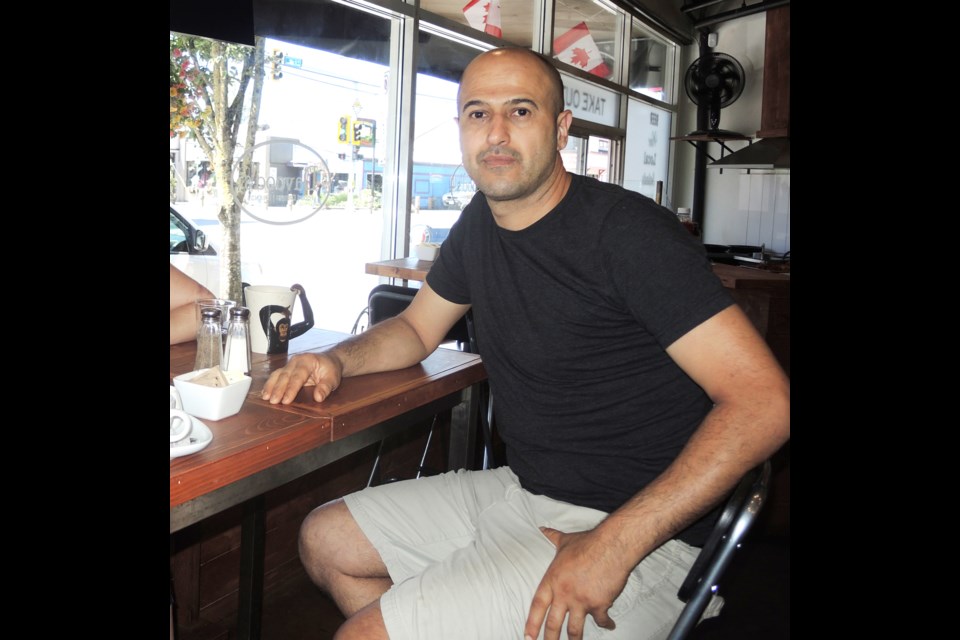When people talk about Steveston Village, they usually think about the docks, seafood, and the many boutique small businesses.
However, while said businesses are enjoyed by many, in 2017, an average of more than one shut down every month, according to the Steveston Merchants Association (SMA).
Some business owners think the trend is nothing unusual, but others think it is a sign that businesses in Steveston are struggling.
A recent statement from the Steveston Insider reveals 27 new shops opened while 14 said goodbye to the community last year.
Businesses that closed covered a wide range of services, including an art studio, café, bicycle shop, antique store, travel agency, bakery, restaurant, home store and law firm.
This month, the well-known, long-established Greek restaurant George’s Taverna was taken over by the former owner of Italian restaurant Paesano’s, Satinder Jaswal.
Carolynne Palla, the Insider’s chief editor and SMA administrator, who did the research, said the turnover rate was within a reasonable range.
“Businesses open and close; owners retire, all have other personal reasons, it’s normal. I wouldn’t say it’s any different than any other year of any other community really,” said Palla.
However, long-time Steveston business owner, Steveston Barbers’ Iain Mackelworth, told the News that, although businesses change hands all the time, he has seen it “much more often in recent years.”
“I have talked to many business owners here and many are struggling. One problem talked about again and again is that they can’t find workers,” said Mackelworth.
He attributes the labour shortage to a lack of public transit infrastructure to Steveston while an exodus of workers moving away due to high housing prices.
“I don’t care how much the house prices are, we need the infrastructure to bring people into work who had moved away,” said Mackelworth.
“I’m from London, the UK, and the housing there is much more expensive, but workers living in the suburbs can get to work in London in 10 minutes by train. Our government should learn from them.”
Mackelworth’s friend, owner of Davood’s Bistro, Davood Khatami, said he nearly had to close his business when the only staff member asked to leave recently.
“I have had stable customers over the years, but because I couldn’t find staff, I have to close the shop two days a week now,” said Khatami.
“I spent a long time persuading the staff to stay, and as a condition, I will let her work on the days she wants, which means I may have to close on Friday now.”
Khatami said only two to three people responded to his job ads online, compared to at least 50 applicants five years ago.
Now, he and his one employee cover all the shifts, with help from his wife who has a regular job on weekdays. If either of them calls in sick or goes on vacation, the shop has to be closed.
“I don’t have any future plans. I don’t know when the situation is gonna change. I just have my business day by day and wish I will get lucky someday and get more staff,” said Khatami.
Mackelworth said what the businesses are suffering now is only the “tip of the iceberg.”
“If still nothing happens, no infrastructure is built, no one will come to work in Steveston in the future, and it will become a ‘ghost town,’” he warned.
Khatami added that increasing costs, such as rental prices and insurance, might also be reasons that drive businesses away from Steveston.
“The rental prices can go up to $50 per sq. ft. now; It’s unbelievable. But there is only so much we can increase our prices by. Will you pay five dollars for a coffee or croissant?” Khatami asked.
“Business owners come to Steveston and think they can be different, then face the same problems and leave.”
Palla said potential business owners do tend to overestimate the traffic Steveston businesses are getting.
“The only thing I would personally say is that when businesses open in Steveston, they think that there is a lot of traffic here, and there is not,” said Palla.
“It’s very seasonal, so you just don’t have the volume of people here to fill out the stores and get a lot of businesses here.
“So I think if you don’t really do your homework and really know what you are getting into when you start businesses here, you may be surprised that there isn’t a lot of businesses here to be had.”



